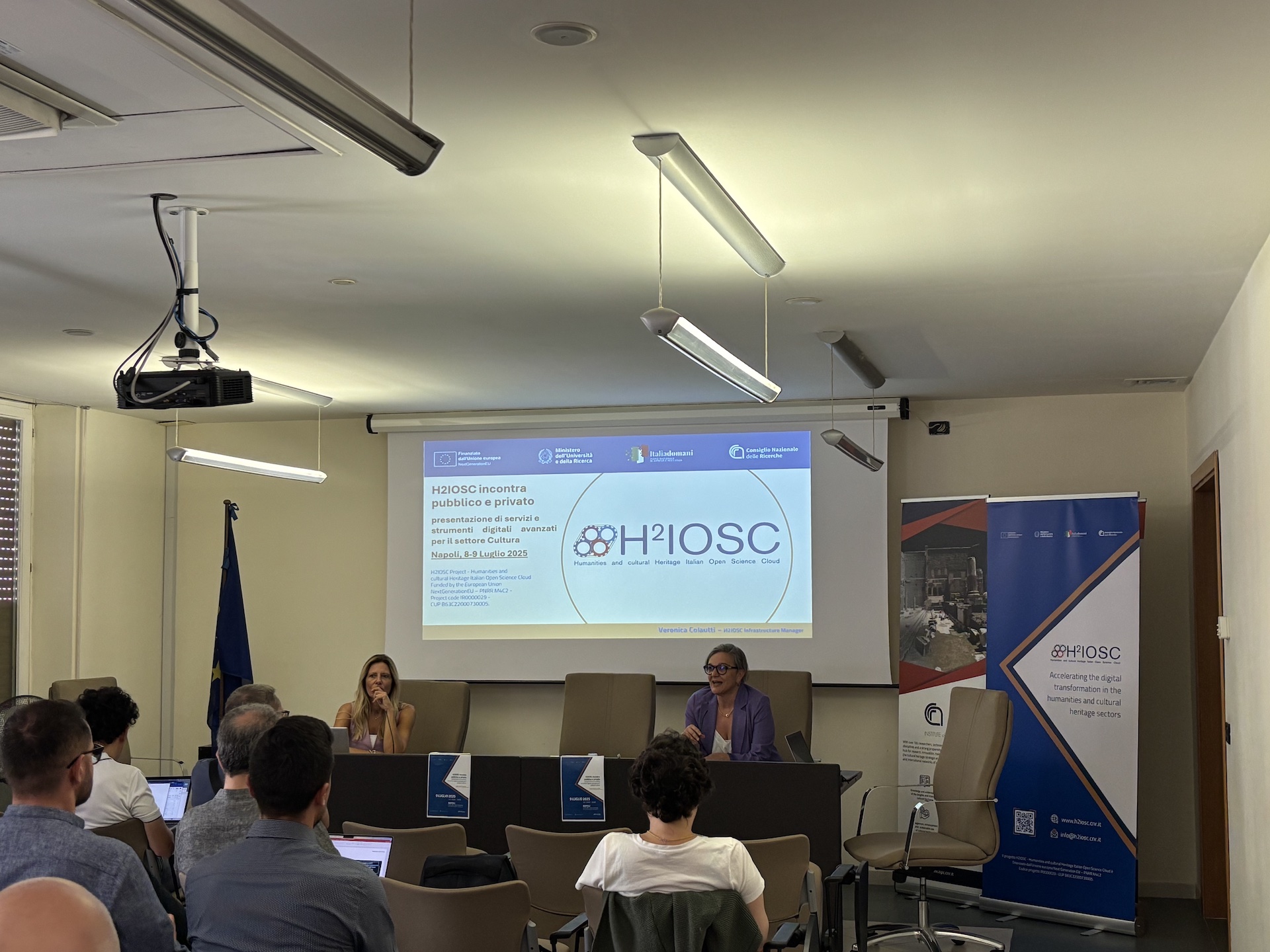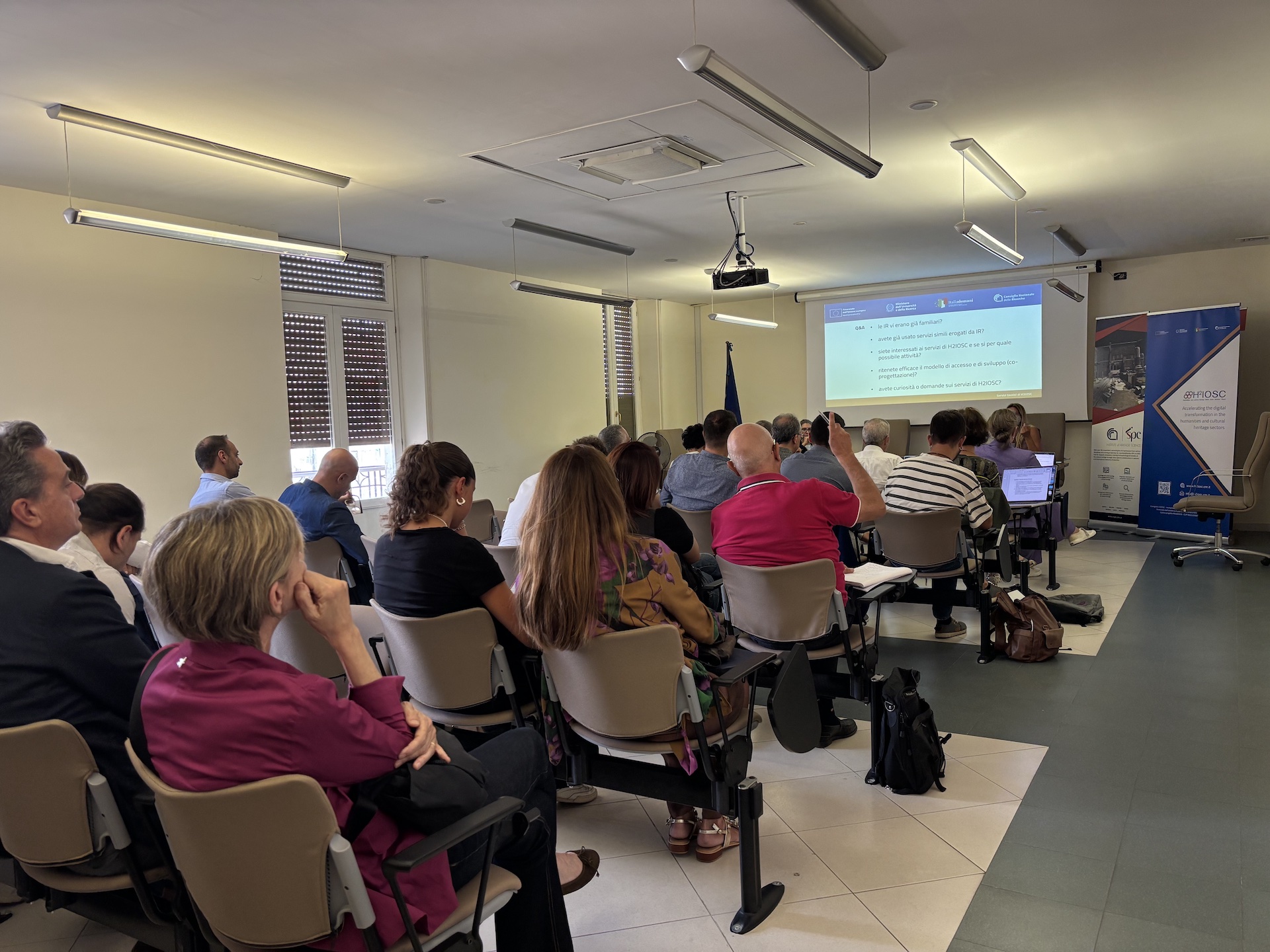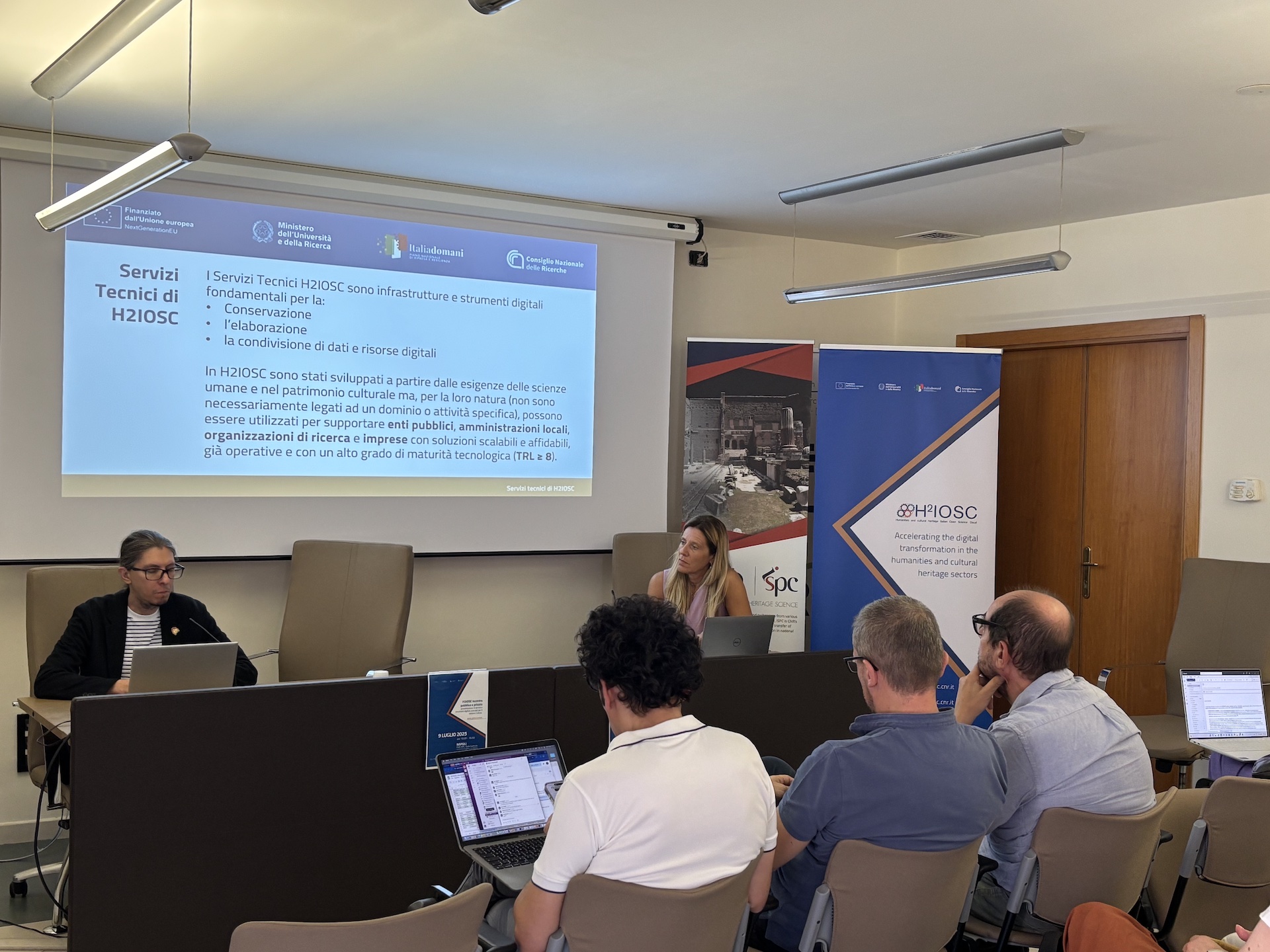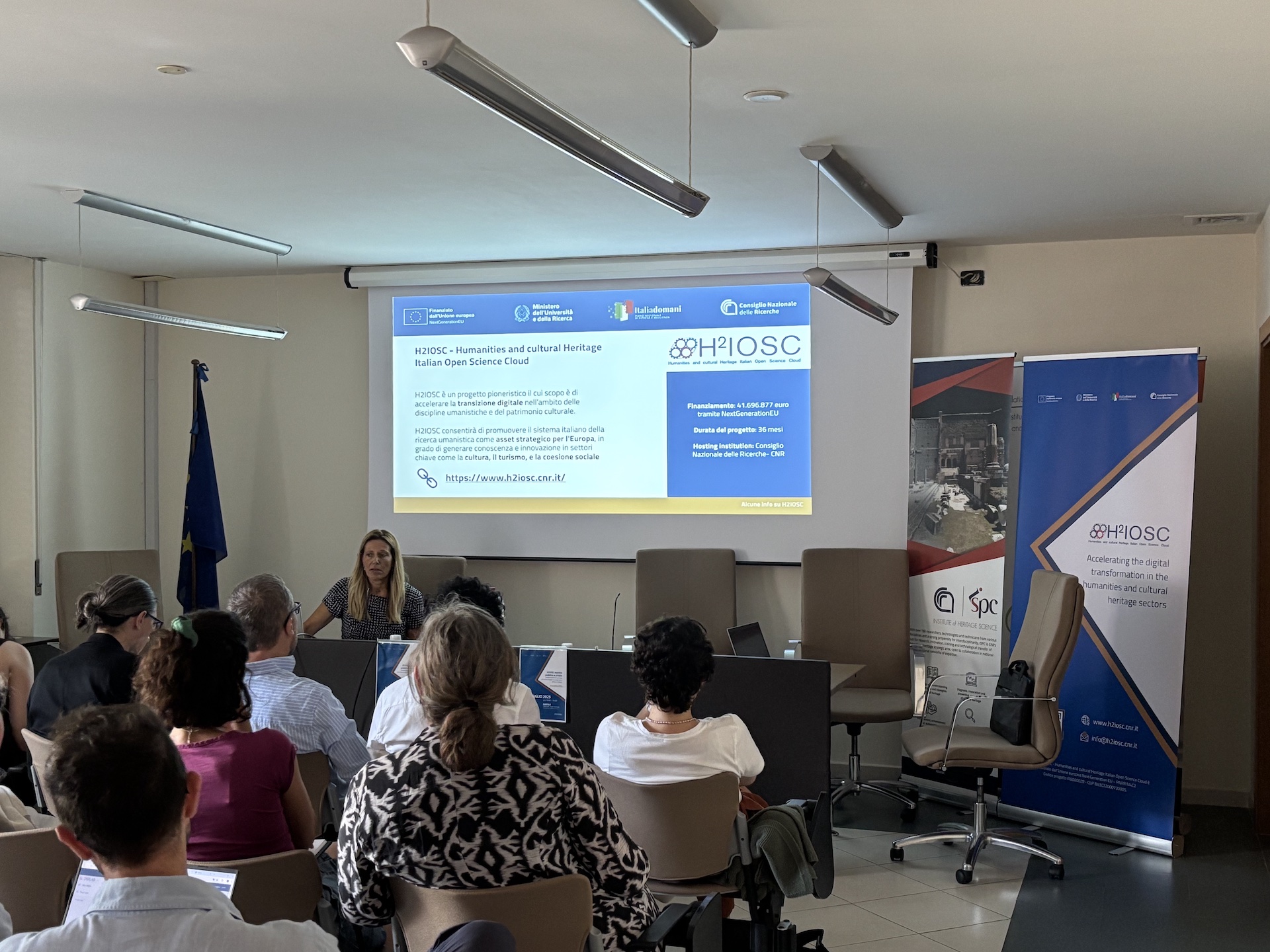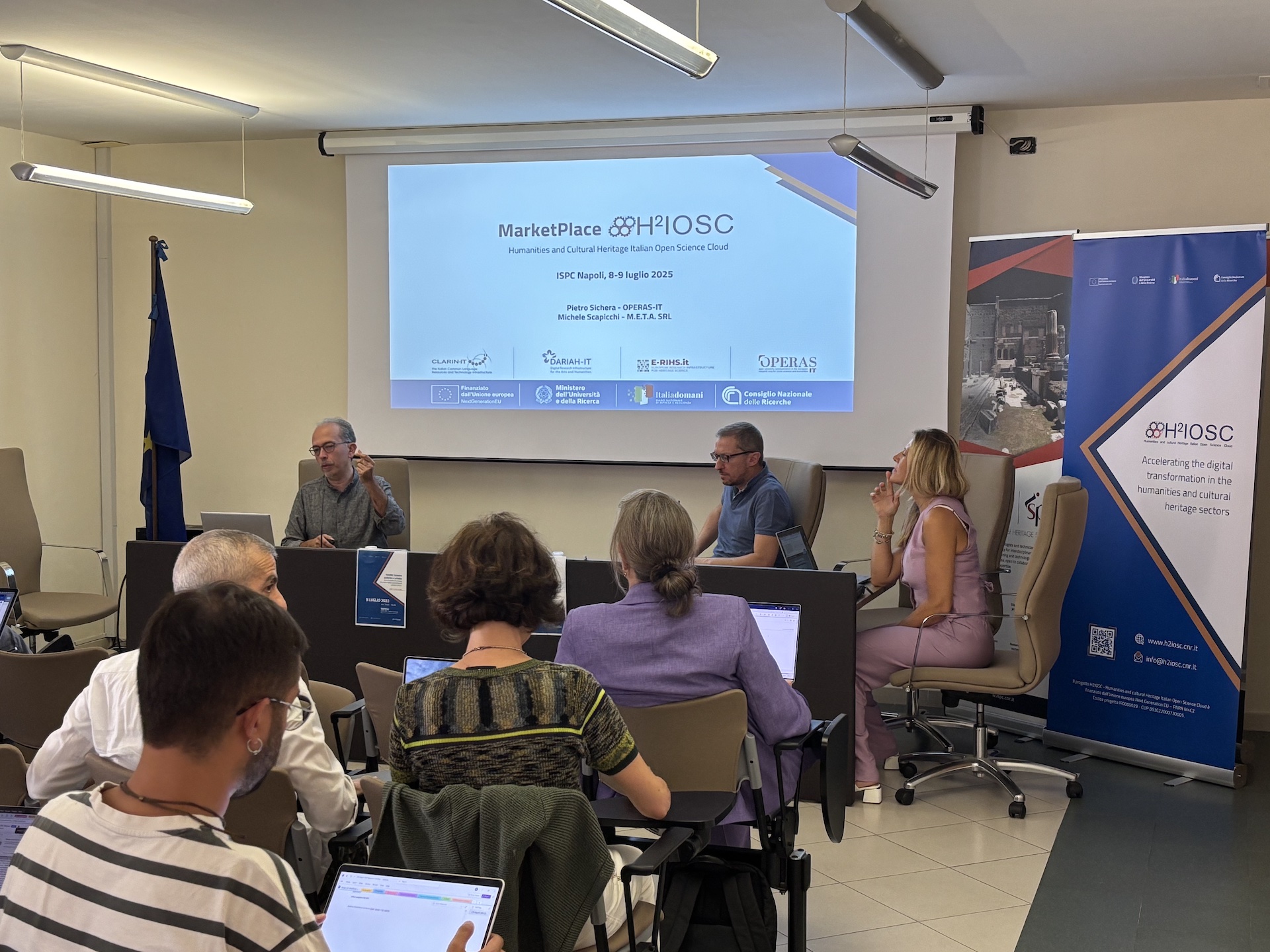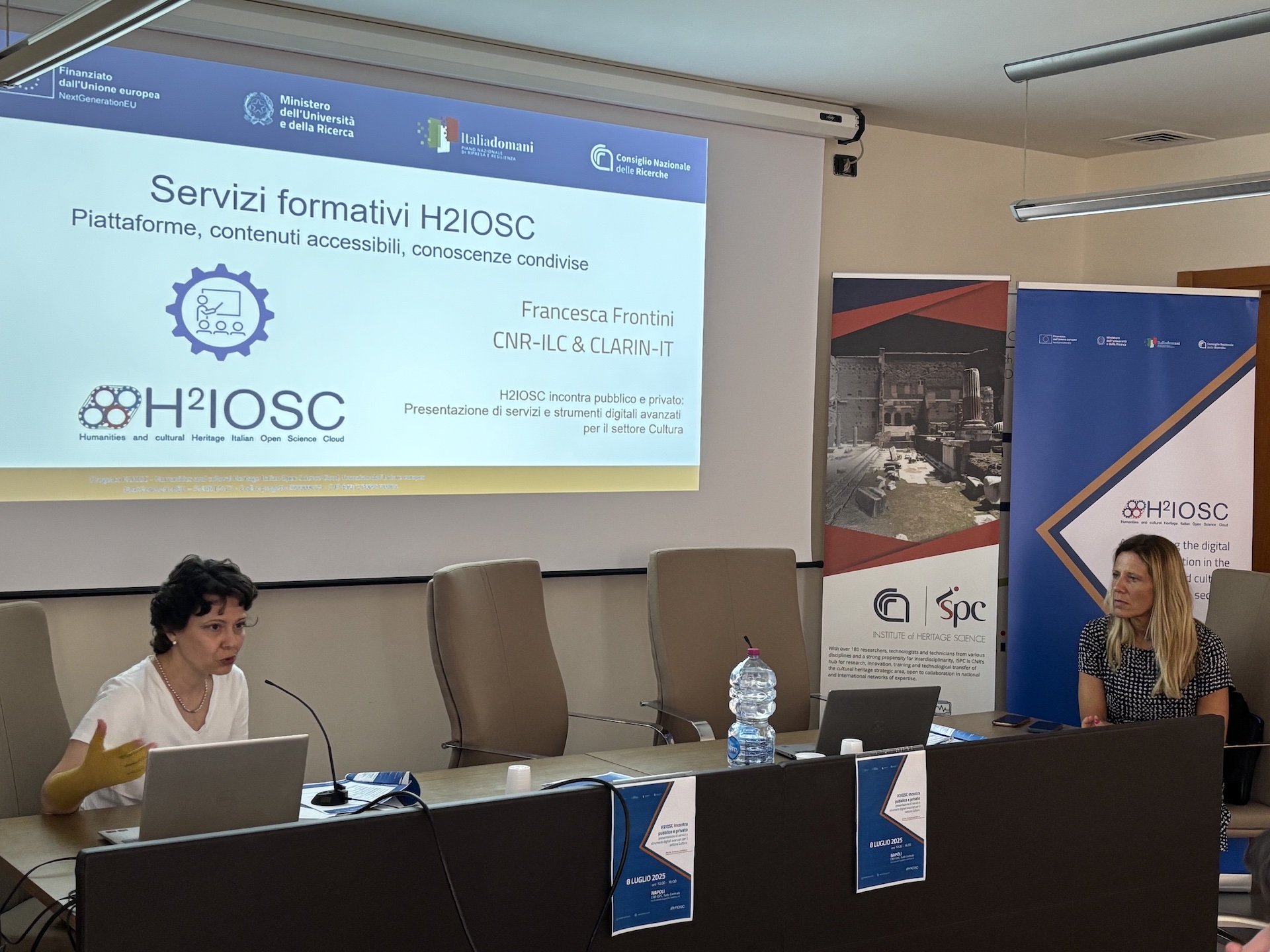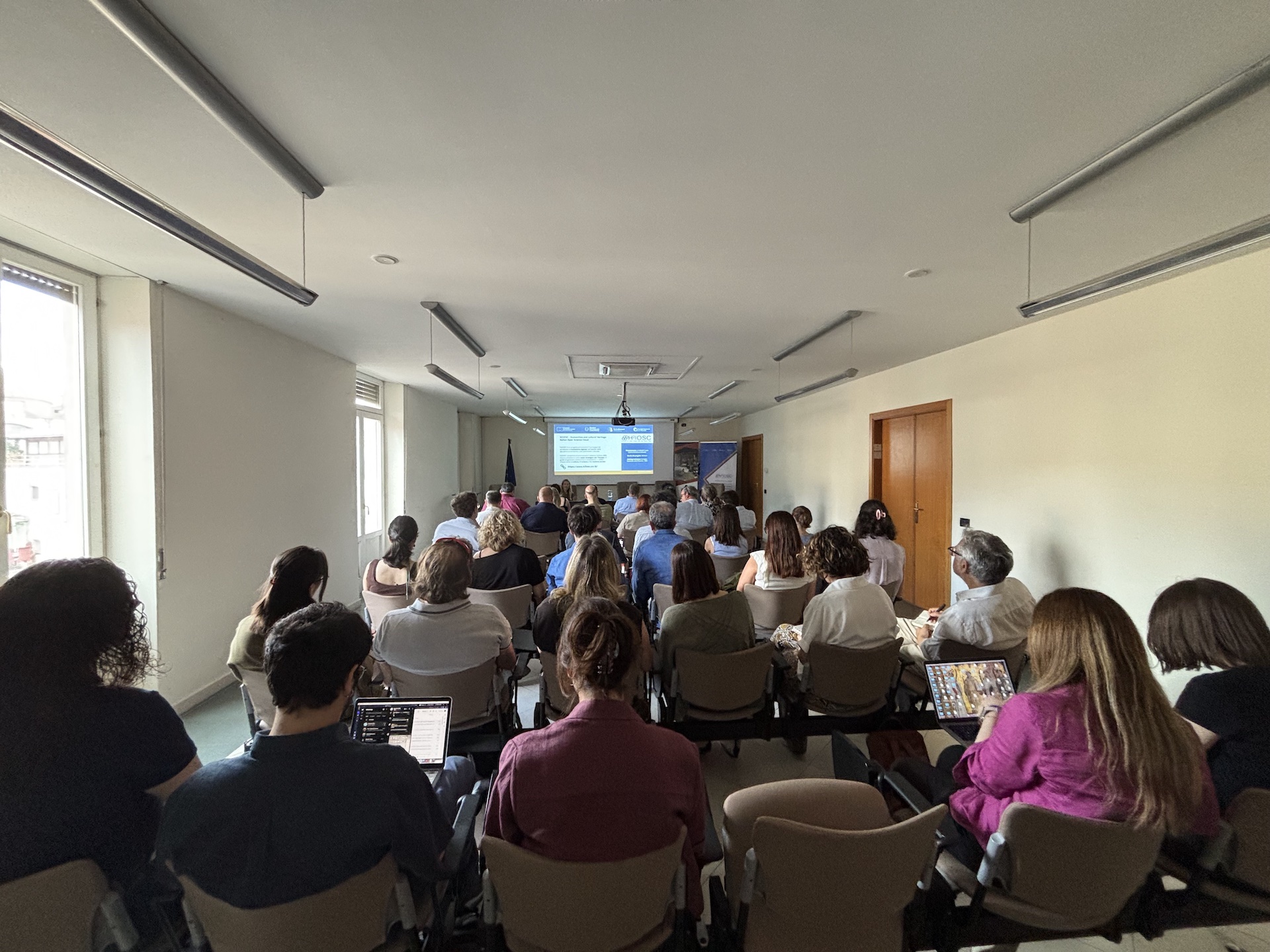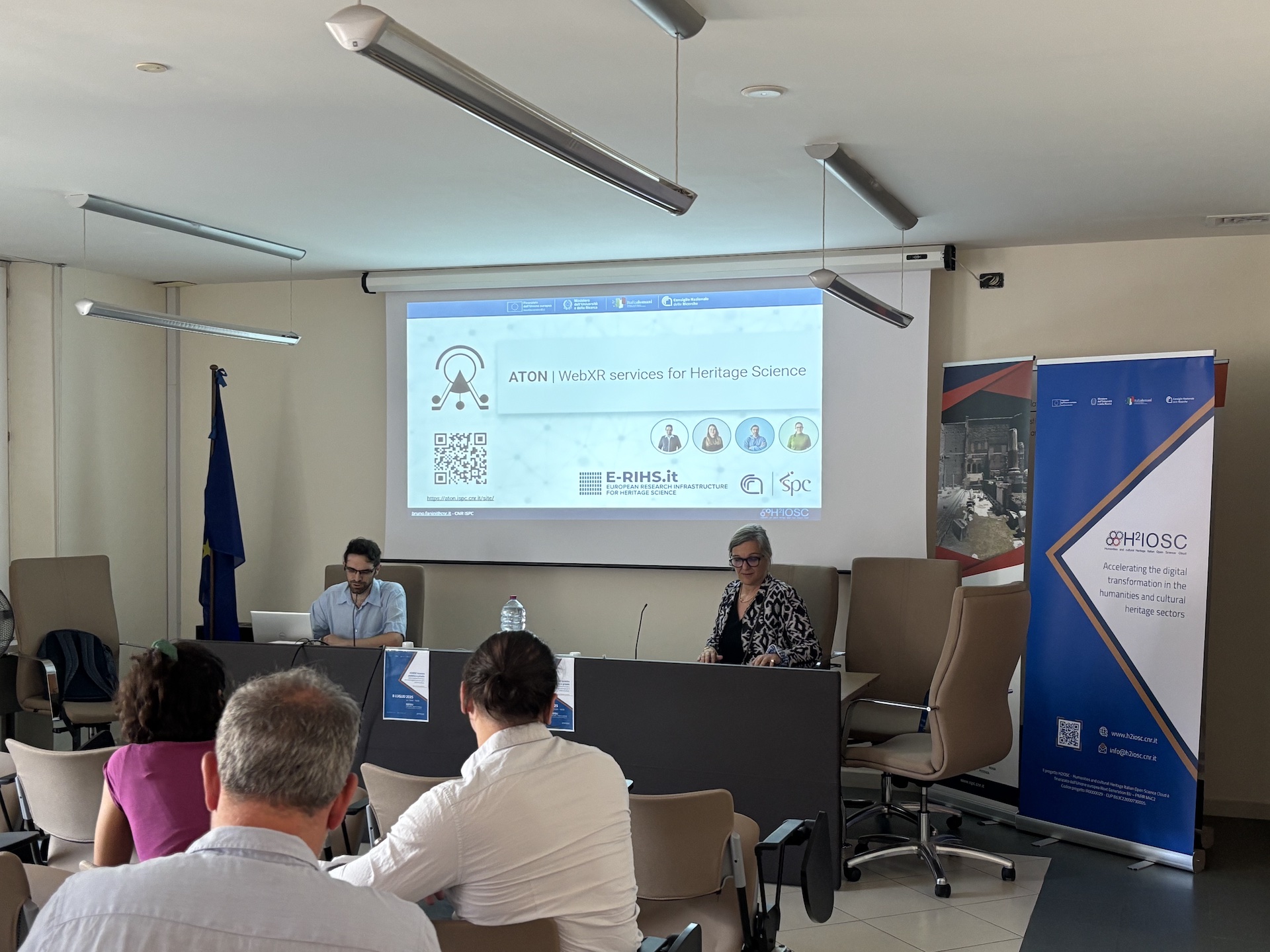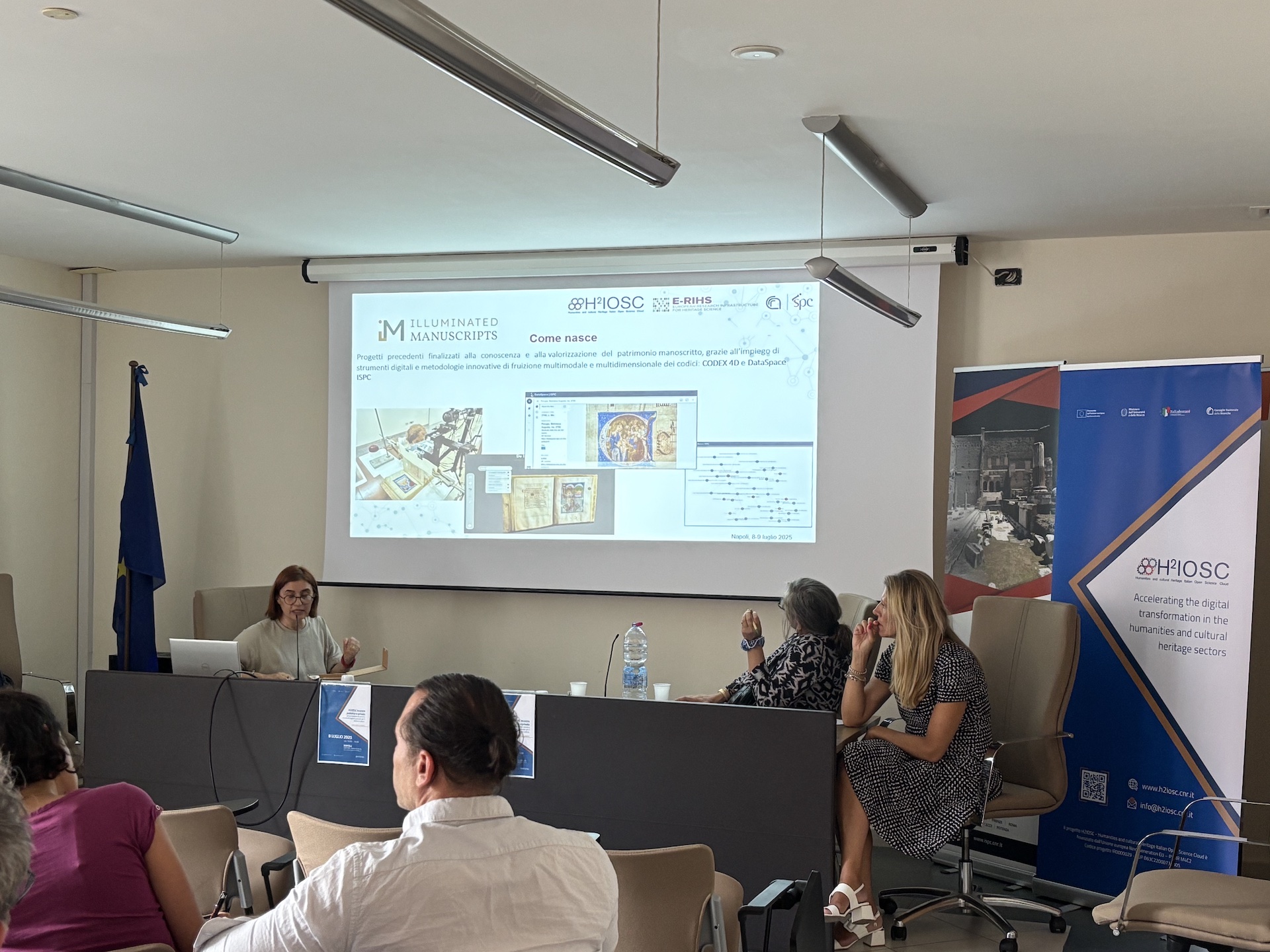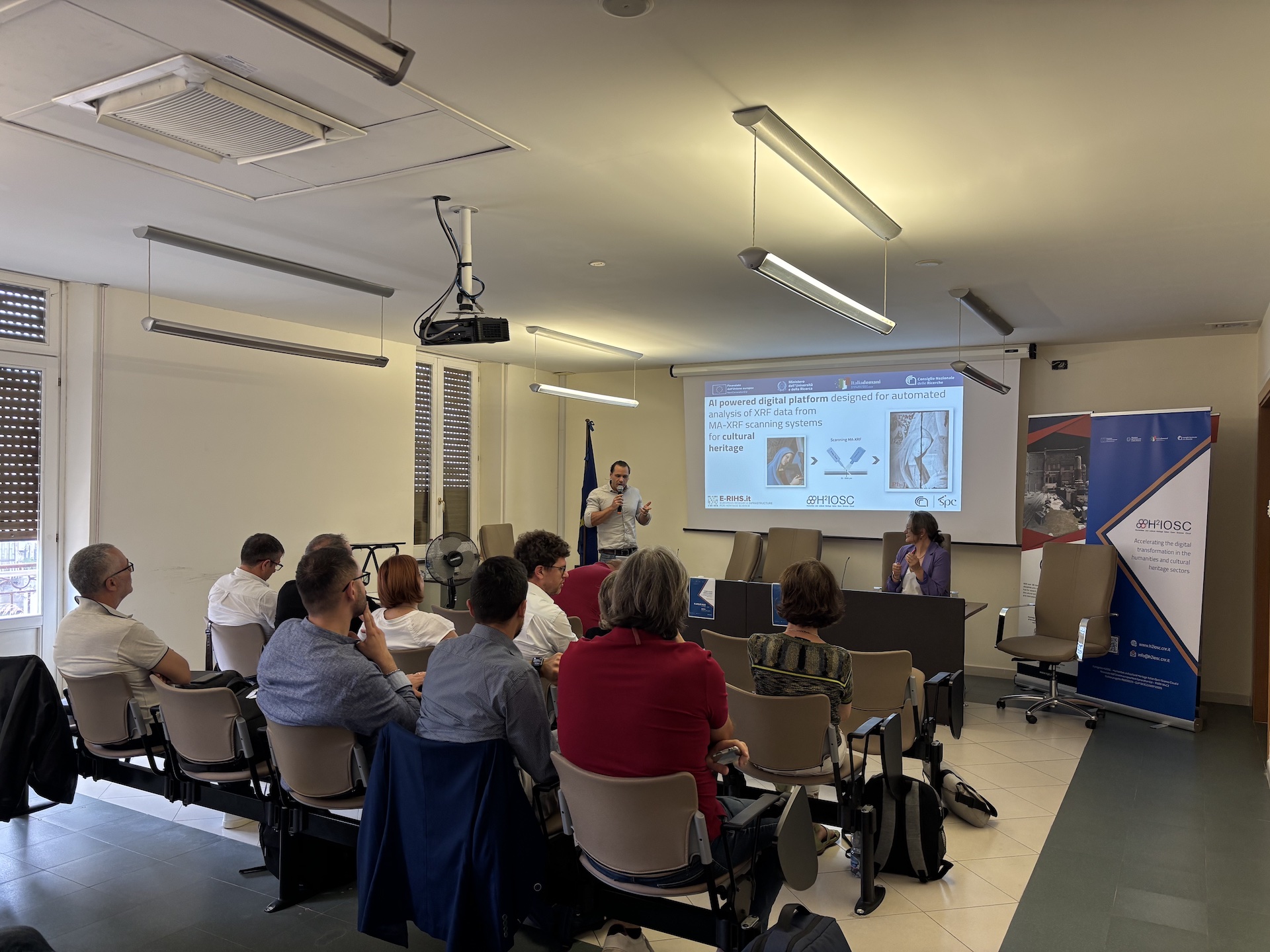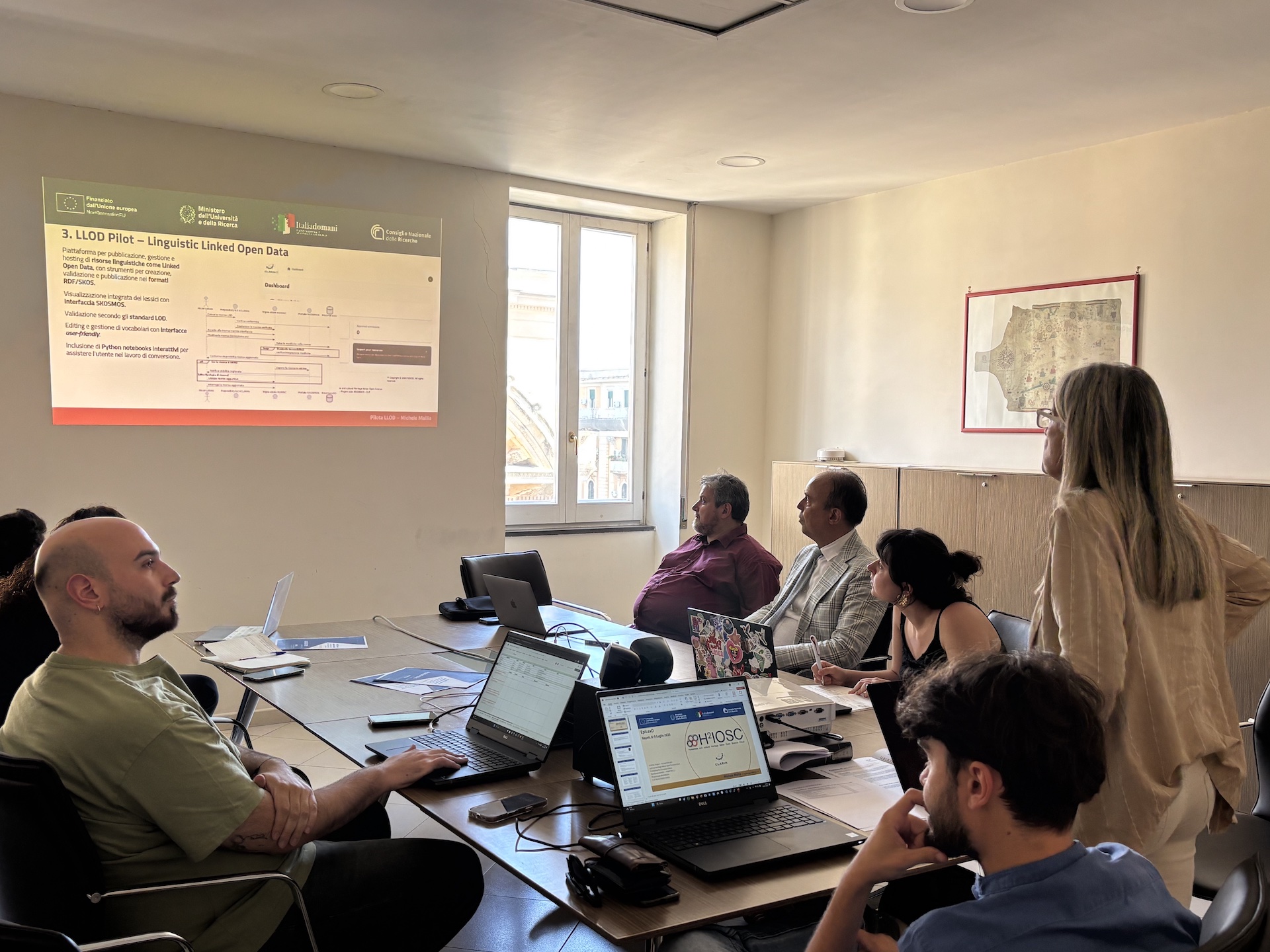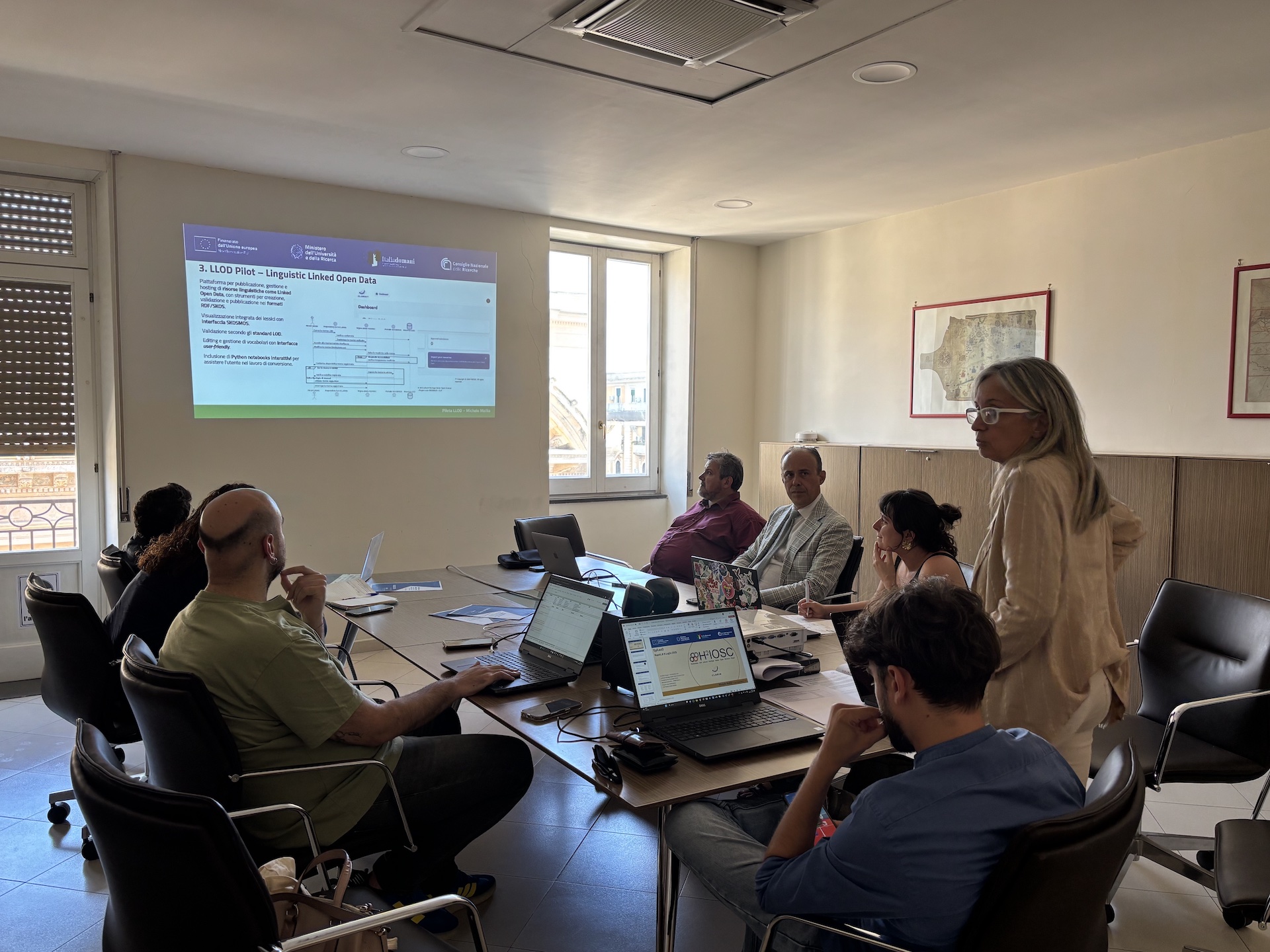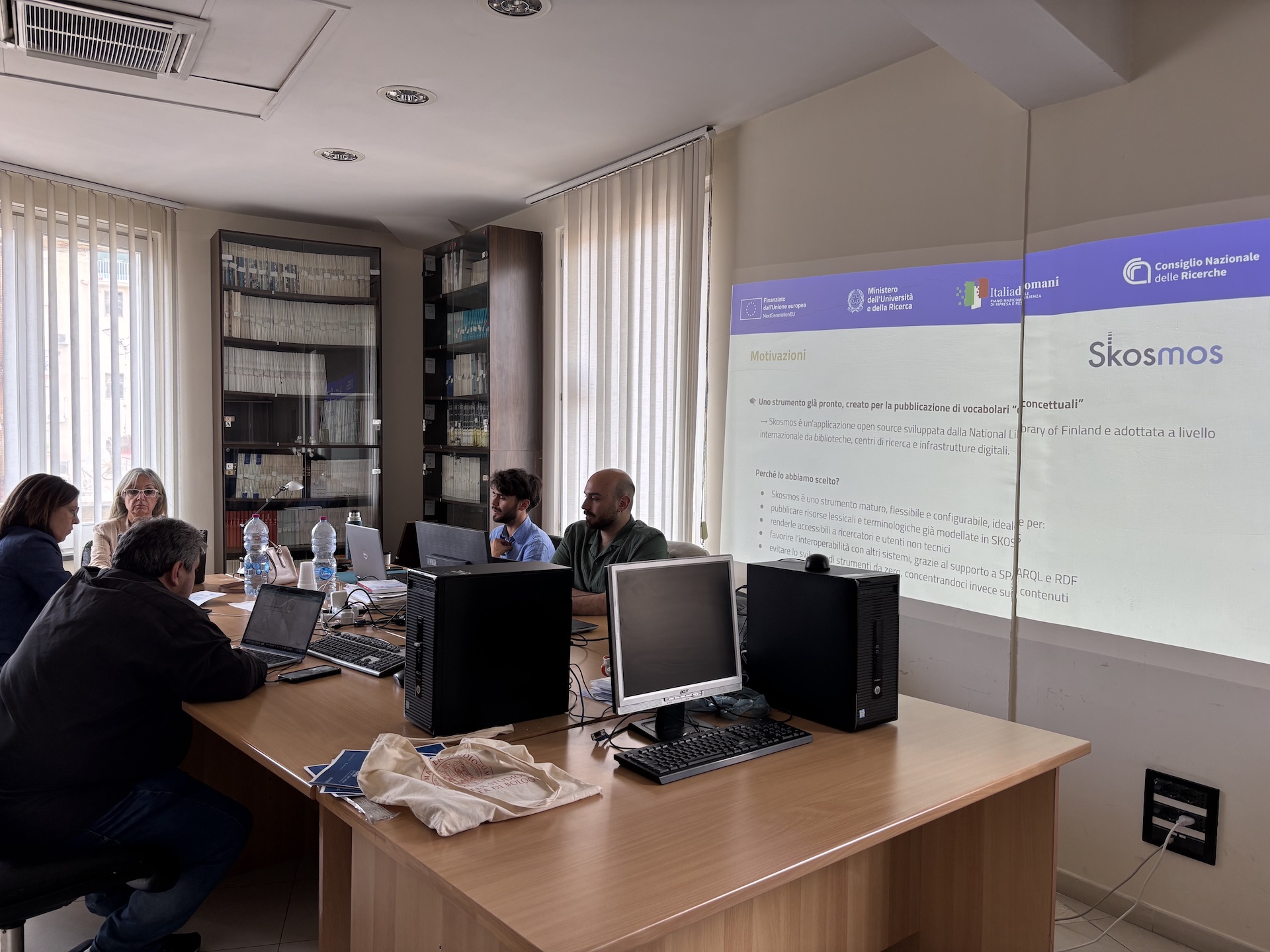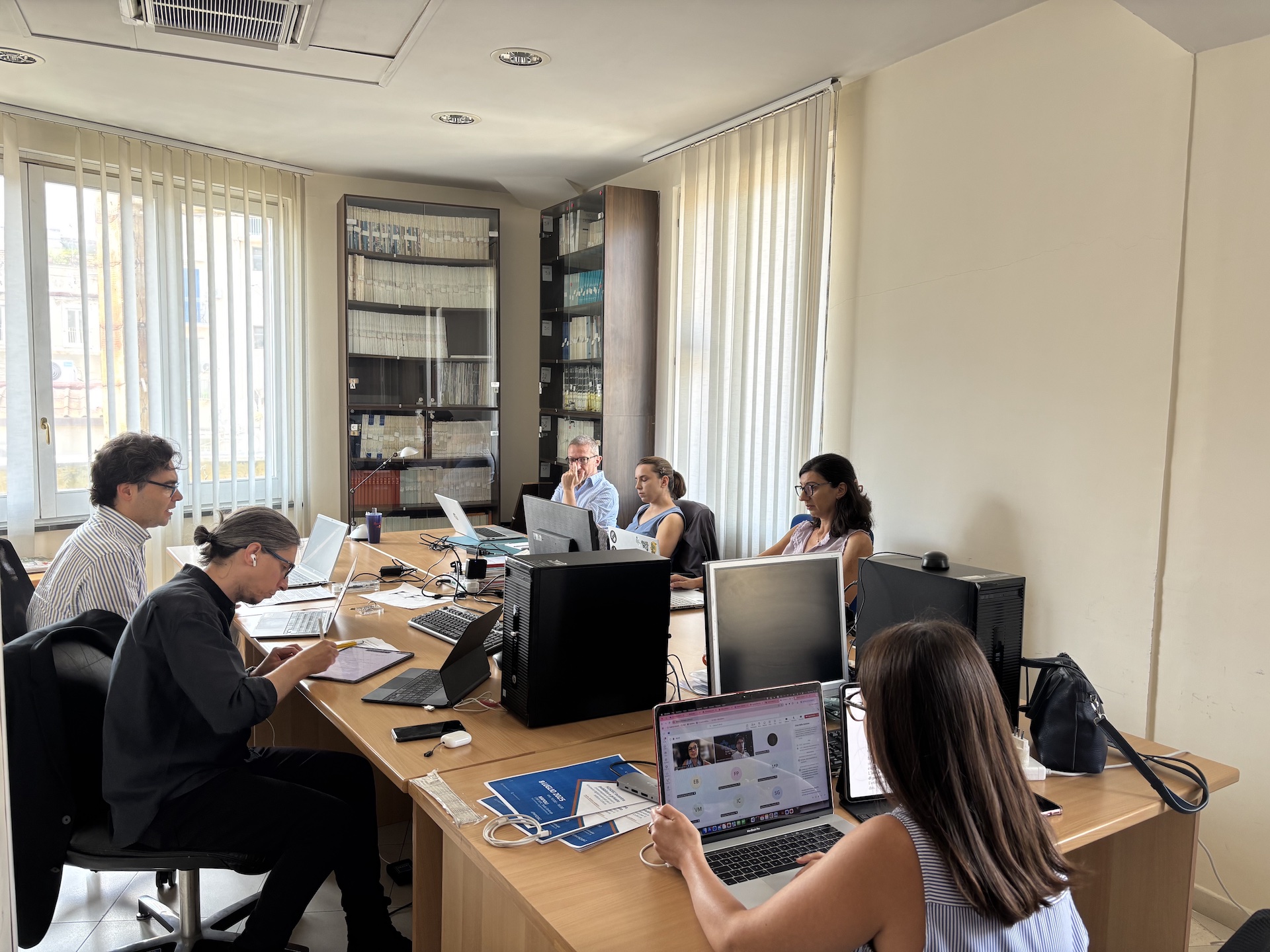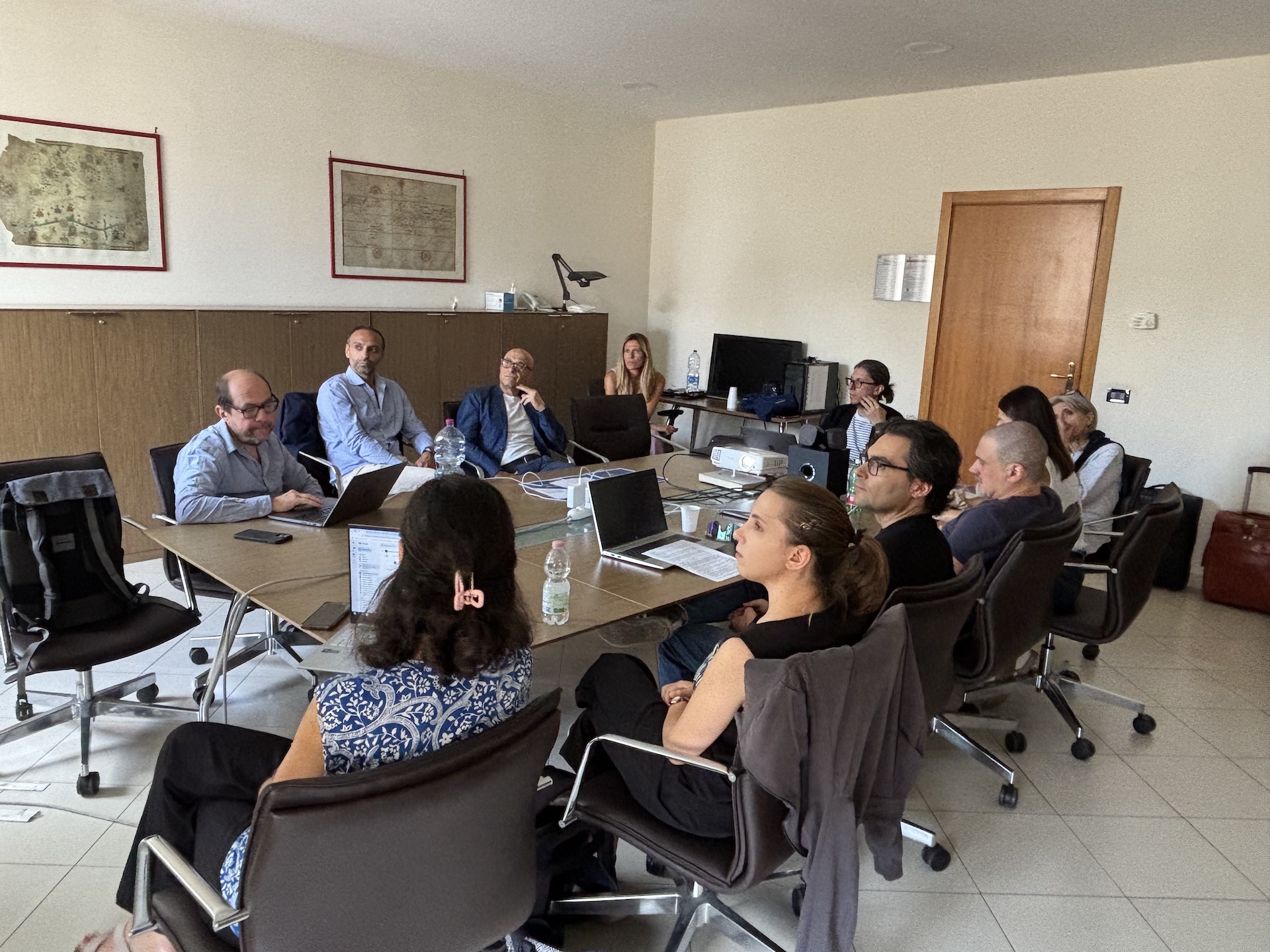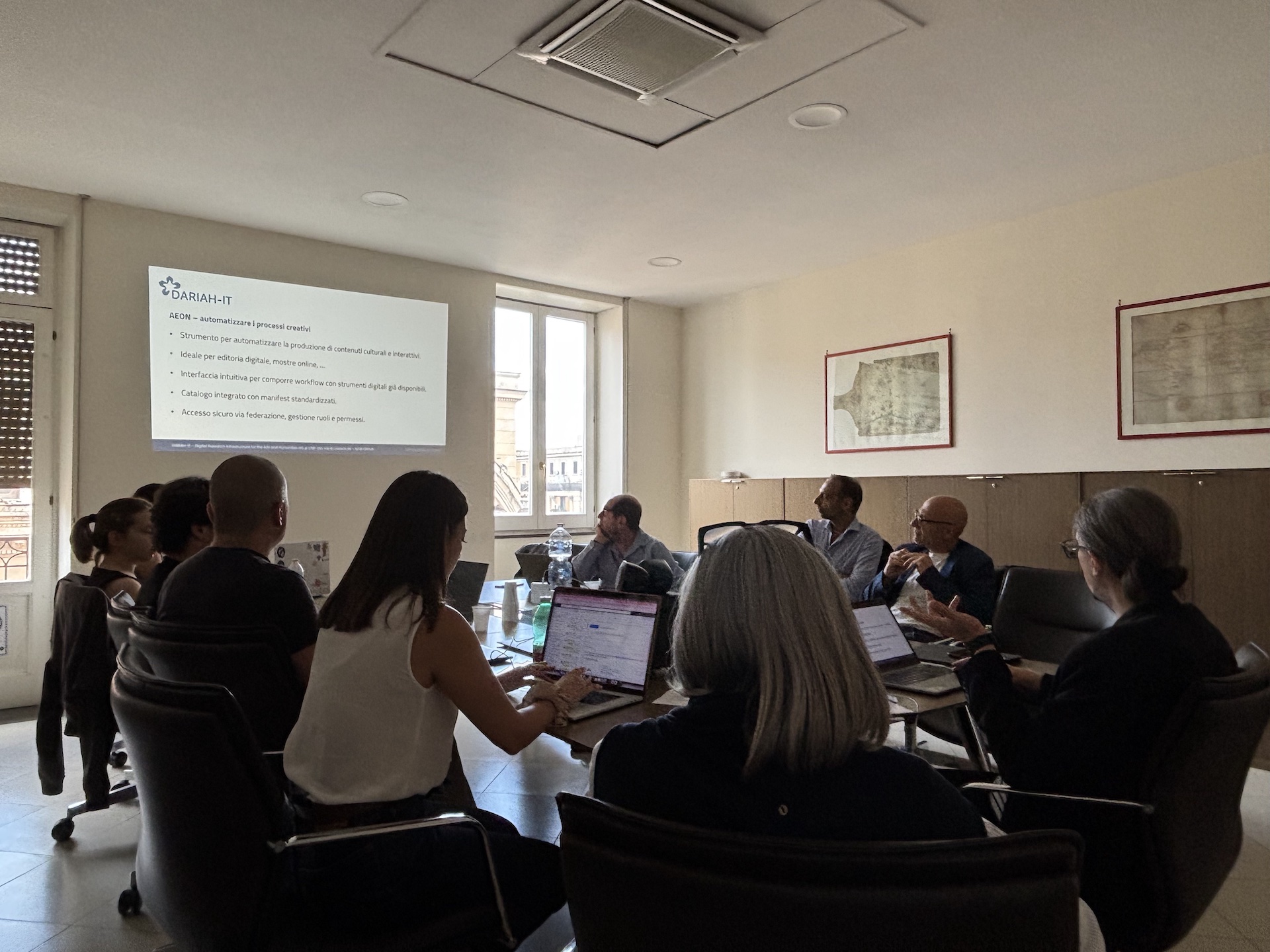On July 8–9, 2025, the headquarters of CNR ISPC in Naples hosted the event H2IOSC meets the public and private sectors: presentation of advanced digital services and tools for the cultural field. The initiative was designed to introduce the services and digital tools developed within the H2IOSC Cluster, and to promote their accessibility and use by public institutions, private companies, non-profits, and cultural operators working in the fields of humanities, social sciences, and heritage.
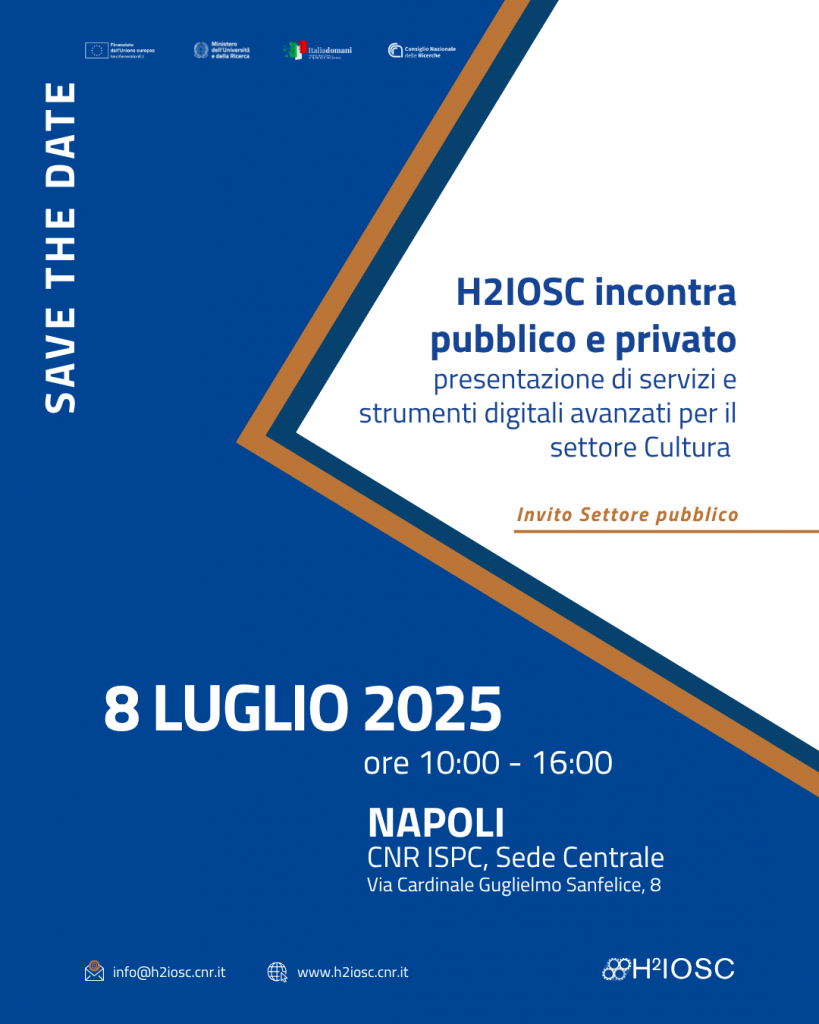
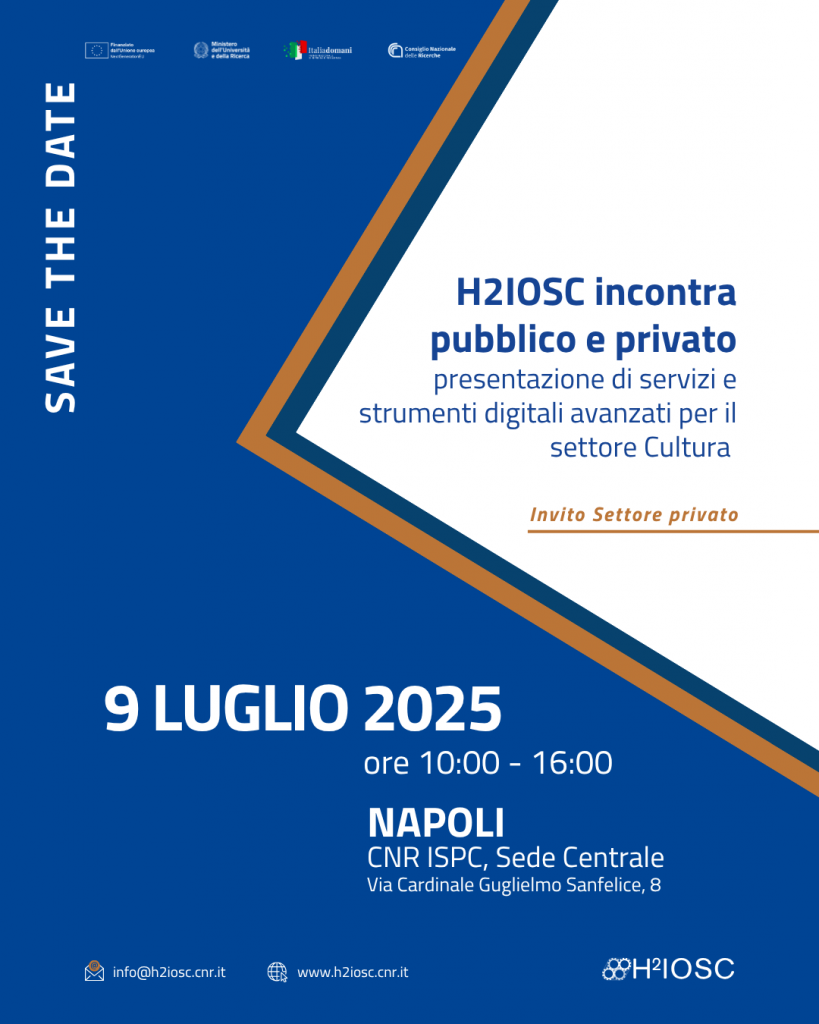
July 8 was dedicated to the public sector, with participants from universities and national institutions. July 9, aimed at the private sector, welcomed companies operating in cultural, technological, and educational fields.
The event offered an opportunity to explore the variety of services provided by the H2IOSC Cluster:
- Technical services: digital infrastructures essential for research and data management, including solutions for secure storage, high-performance computing, AI-powered content analysis, and advanced ICT services to support processing, sharing, and interoperability of data within virtual and collaborative research environments.
- Training services: free self-paced courses and platforms for sharing and downloading open-access training materials, tailored for people involved in the humanities, social sciences, and heritage science, to strengthen interdisciplinary skills and the use of Research Infrastructures.
- Advanced digital services: software, tools, datasets, and pilot projects addressing the needs of those involved in the study, management, and valorization of cultural, linguistic, and historical heritage, including tools for remote monitoring, diagnostics, data extraction and analysis, and digital fabrication.
The day was structured into two main sessions:
In the morning, a plenary session introduced the H2IOSC Cluster, its access modalities, the Marketplace, as well as its technical and training services.
In the afternoon, participants joined thematic parallel sessions, where they interacted directly with the providers of advanced digital services, presented for the occasion, from the following participating Research Infrastructures: CLARIN-IT, DARIAH-IT, and E-RIHS.it.
An overview of the plenary session in the morning
The event attracted great interest, particularly from universities, public administrations, local authorities, SMEs, and cultural institutions. Participants showed strong attention to practical, innovative tools for managing, preserving, and enhancing cultural, linguistic, and historical heritage.
The Naples event marked the first in a series of outreach meetings for the H2IOSC project: a journey of engagement with local territories, institutions, universities, and businesses, aimed at promoting the conscious and collaborative use of Research Infrastructures and advanced digital services developed to support the humanities and cultural heritage, and at building new synergies for future initiatives.
Digital services presented during the event
E-RIHS.it for H2IOSC
ATON – WebXR services for Heritage Science
An online platform for displaying and interacting with 3D models, 360° panoramas, and digital scenes directly in a browser, without any installation. Ideal for museums, cultural institutions, designers, and creatives seeking to showcase immersive 3D content.
PILOT Interlumo – Analytics services for remote interactions
A toolset for tracking, analyzing, and visualizing how users interact with applications, virtual exhibitions, websites, or physical installations. Perfect for designing and evaluating audience engagement in interactive experiences.
SENNSE – Sensor platform for cultural heritage monitoring
A system of sensors and dashboards to monitor the environmental conditions of buildings or cultural objects (temperature, humidity, light, air quality, etc.). Useful for heritage managers who need to prevent structural or environmental damage.
PILOT Illuminated Manuscripts Hub
A digital platform for exploring illuminated manuscripts in their full complexity—texts, decorations, materials, and diagnostic data. It provides tools for visualizing and semantically connecting 2D, 3D, and scientific content. Designed for researchers, librarians, and institutions involved in manuscript conservation and research.
PILOT ArchaeoHub – Open Digital Archaeology Hub
A platform for exploring and accessing archaeological data (texts, images, datasets, maps) organized by geographic area. It supports researchers, local authorities, and cultural institutions in sharing and valorizing archaeological knowledge.
X-ART – X-ray fluorescence Artificial Intelligence Research Tool for Cultural Heritage
An AI-powered platform for non-invasive spectral analysis of cultural heritage materials using XRF imaging. It offers an intuitive dashboard for exploring complex data without technical expertise. Ideal for museums, conservators, researchers, and heritage-oriented companies.
CLARIN-IT for H2IOSC
EpiLexO Editor
A web platform for creating, editing, and linking digital lexica of ancient languages to epigraphic and bibliographic sources. Designed for researchers in linguistics, philology, and historical language digitization.
SKOSMOS Vocabulary Service
A platform for publishing and browsing vocabularies, thesauri, and ontologies. It supports digital libraries, archives, and research projects in organizing terminological resources using international standards.
PILOT LLOD – Linked Open Data for Linguistic Resources
A service for creating, managing, and publishing vocabularies and linguistic data in compliance with Linked Open Data and semantic web standards. It helps institutions make their data more accessible and interoperable.
eScriptorium – Web platform for Handwritten Text Recognition (HTR)
A tool to convert images of historical documents into digital text. Useful for libraries, archives, and researchers working to make large collections of printed or handwritten texts searchable and accessible.
DARIAH-IT for H2IOSC
PILOT DPH – Digital Philology Hub
A platform for Digital Textual Scholarship, with tools to create born-digital critical editions. It includes modular tools for every phase of philological work, from manuscript input and transcription to collation, analysis, and construction of a critical apparatus.
AEON – dAriah sErvice Oriented iNfrastructure
AEON is a digital platform to manage and automate complex workflows, even through the combination of different services. Designed for researchers and heritage professionals, AEON makes it easy to activate a variety of digital services and applications securely and reliably, through secure, federated access, promoting collaboration across European Research Infrastructures.
MFE – MetaFAIR Ecosystem
A platform for managing the full lifecycle of research data and digital resources, in line with FAIR principles. It supports cataloging, preserving, and enhancing digital assets for libraries, archives, and museums.

